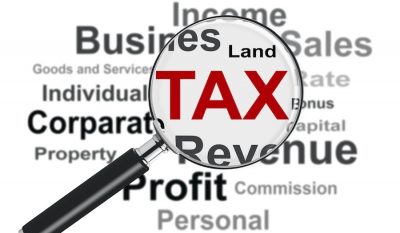

We regularly contribute to the Flying Solo business forum community and recently came across an interesting and very common question that the average person encounters when trying to understand the mechanism of franking credits and company tax. The question and our reply is reproduced below (from the FS forum)
Understanding Company Profits
Hi,
I’m looking for some help understanding the options to efficiently use company profits to build the businesses assets or savings to buy future big items.
As I understand it at the end of the financial year any company profits not disbersed to shareholders/directors are taxable at 27.5% (company tax)
what use is this money now that it’s ‘Taxed’ or has been taxed already. All i can do with it is pay it to shareholders or directors as franked credits.
I want to use company profits pre tax to build it’s assets or save it up so I can by big ticket item in the future such as machinery, vehicle(truck) or property such as an office. I don’t want to do this with taxed and saved company profits. How do you efficiently save up company profits without getting hit with tax each year?
For example: If i save non taxed company profits for a 2-3 years, I can buy a small office space outright for say 300k-400k and rent it out. How do I stop company tax being applied to the profits across those 3 years and purchase the office in year 4?
360 Partners Reply –
The simple answer is that you can’t. If your company is making profits after all deductions then it will pay company tax at 27.5% if eligible for that rate or 30% otherwise.
Also, it might help you to understand the difference between “above the line” deductible expenses like wages or directors fees which reduce profit versus “below the line” appropriations of profits to shareholders / members (not directors). These appropriations to shareholders are dividends and calculated after company tax has been paid. So if the company makes a before-tax profit of $100 it then pays $27.50 company tax to ATO and that leaves $72.50 retain earnings after tax that can (but does not have to be) paid as dividends to shareholders. If company tax has been paid that can be attached to the dividends as a franking credit. So then say an individual shareholder includes the $72.50 dividend in their tax return and ADDS the notional $27.50 franking credit to produce personal taxable income of $100. On that, they may pay $0 tax or Up to $47 tax but that number is then reduced by the refundable (for now) franking credit. So if the tax before credit was $0 (because the person had low income) they would get the $27.5 refunded to them from ATO. Alternatively if on high personal tax rate of say 47 cents in dollar that person would pay the difference as a top-up tax. $47 less $27.5 = $19.50 tax payable.
Companies are not a magic bullet. They allow retention of profits at a potentially lower average tax rate until such time as the dividends are paid out. I might also caution you against acquiring appreciation investment type capital assets in a company because companies cannot access the CGT 50% general discount that other structures generally can if an asset held longer than 12 months. The caveat is if the asset is used in the business (like an office) the company may be able to access small business CGT concessions and pay no tax at all on the future capital gain. The extra kicker is that capital gain can be paid into an SMSF (indexed limit currently about $1.45m) and is not subject to the normal $1.6m non-concession contribution cap so you can pump more money in super than would otherwise be the case. It’s about the only way to bypass that super cap. This can all save hundreds of thousands or in some cases millions of dollars.
Tax planning is not DIY. There are three important ingredients. 1. An advisor that has the knowledge and expertise to devise and implement tax strategy. 2 An advisor that enjoys saving their clients tax as a matter of personal achievement 3. A client that recognises that “they don’t know what they don’t know” and therefore engages the right people to handle it effectively for them.
Tax is the biggest expense most people incur – don’t pay more than you need to. Contact us today.
Contact Us






